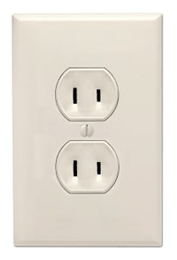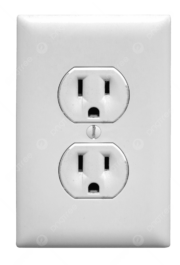
VS

In an era where our reliance on electronic devices is ever-increasing, the safety and functionality of electrical outlets are paramount. Two-prong outlets, while commonly found in older homes, raise concerns about safety and compatibility with modern appliances. But are they really dangerous?
Limited Grounding
Unlike their three-prong counterparts, two-prong outlets lack a grounding wire, which serves as a crucial safety feature. Grounding protects against electrical shocks by providing a path for excess electricity to safely dissipate into the ground. Without this grounding mechanism, there's an increased risk of electrical hazards, especially in the event of a fault or surge.
Compatibility Issues
Many modern appliances and electronics come equipped with three-prong plugs designed to utilize grounding for safety and functionality. Plugging these devices into two-prong outlets not only poses a safety risk but also compromises their performance. Additionally, some appliances may require a grounded outlet to function properly, leading to potential damage or malfunction.
Electrical Overload
Older homes with two-prong outlets may not be equipped to handle the electrical demands of modern living. As a result, homeowners may resort to unsafe practices such as using adapters or extension cords, increasing the risk of overloading circuits and electrical fires.
Code Compliance
Building codes and regulations evolve to prioritize safety and keep pace with technological advancements. In many jurisdictions, two-prong outlets are no longer compliant with current electrical codes, especially in areas prone to moisture or where GFCI (Ground Fault Circuit Interrupter) protection is required, such as kitchens, bathrooms, and outdoor spaces.
Conclusion
While two-prong outlets may not necessarily be inherently dangerous, their limitations and potential risks cannot be ignored. If your home is equipped with outdated electrical outlets, consider upgrading to three-prong outlets with proper grounding or installing GFCI outlets where necessary. Consulting with a licensed electrician can help ensure that your home's electrical system meets modern safety standards and provides reliable performance for years to come.
Remember, when it comes to electrical safety, it's better to be proactive than to risk the consequences of outdated infrastructure. Don't wait for an accident to happen; prioritize the safety of your home and loved ones by addressing potential hazards today.
If you have two prong outlets that you'd like to change or need to upgrade your home's electrical system, contact us today for a comprehensive inspection and professional electrical services tailored to your needs.
